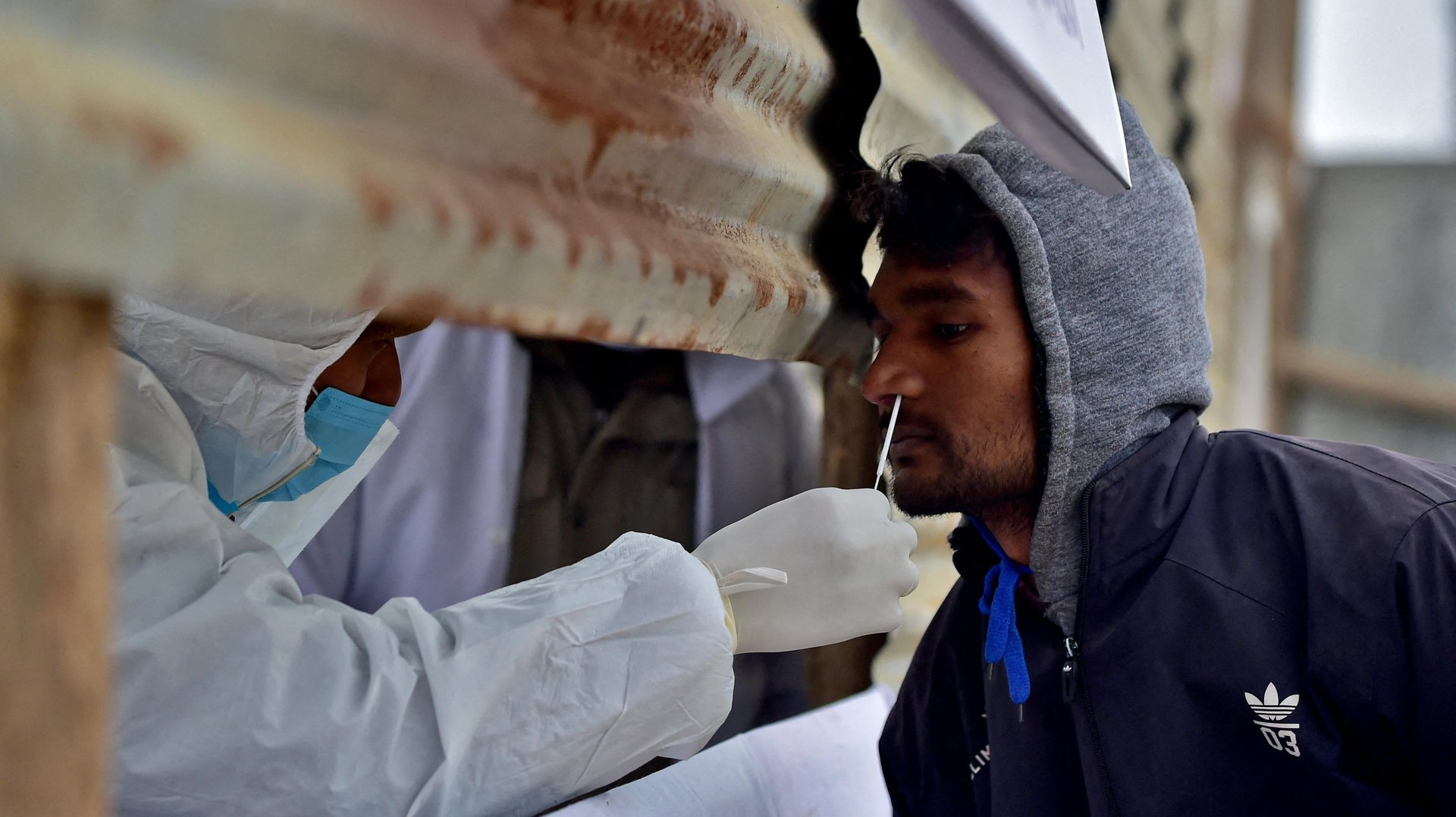India is on alert as covid-19 cases hit a five-month high
The rise in covid-19 cases has coincided with the H3N2 influenza that has killed two persons in the country.

India recorded 1,300 new covid-19 cases today, the highest in nearly five months.
The total number of active cases stood at 7,605 in the country, increasing by 579 in 24 hours, government data showed. The states of Gujarat, Karnataka, and Maharashtra have reported one covid-19 death each during this time.
The number of cases has been rising over the past few days in the country, setting off alarm bells in the government. Prime minister Narendra Modi held a high-level meeting yesterday (March 22) to review the health system’s preparedness and logistics, NDTV reported.
So far, India has administered more than two billion doses of covid-19 vaccines in the country.
Since the pandemic began in 2020, India has recorded more than 44 million covid-19 cases and 530,816 deaths related to the infection, government data shows. The second wave of the pandemic saw a severe shortage of resources in the country, with even oxygen having to be imported from abroad.
It is widely believed that the actual number of deaths may exceed the official figure by millions due to gross under-reporting. In May 2022, the World Health Organization estimated 4.7 million excess covid-19 deaths in India than the official figure.
The latest rise in covid-19 cases comes at a time when the country is grappling with H3N2 influenza cases, affecting children and the elderly the most. The symptoms include high fever, prolonged cough and weakness.
Why are covid-19 cases rising in India?
At yesterday’s meeting, Modi stressed on tracking the newer covid-19 variants and other respiratory infections. Biotechnologists have found a new variant of coronavirus, XBB.1.16 in 76 samples, according to a government-run consortium of 58 laboratories.
While this variant may trigger a fresh surge, it may also be underreported, according to Dr Randeep Guleria, former director of the All India Institute of Medical Sciences (AIIMS), New Delhi.
“...even if we see a surge, there is no need to worry, as long it does not translate into hospitalization and deaths, it is alright,” Guleria told the Press Trust of India. The variants seen last year were “sub-lineages of Omicron,” he said. “So it seems the virus has stabilised a little bit, it is not changing as rapidly as it was in the past,” Guleria said.
